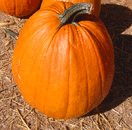gallantwarrior
Gold Member
Autumn has almost run its course here. It's still unseasonably warm, though. It was 61 when I got home around 5 pm today. I'm not complaining, believe me! It will be cold enough too soon to make it Winter in Alaska.And now most of us are wavering between summer and autumn. That is how it is in Albuquerque--still more summer than autumn but hinting loudly that it is supposed to be autumn these days.
Good night darlinks. I really do love you guys.
And we continue pray and/or send good vibes and/or positive thoughts and/or keep vigil for:
Harper
Pogo’s friend Pat and special comfort for Pogo,
Nosmo's mom,
Rod, GW's partner,
Kat's sister,
Dana, Foxfyre's friend recovering from heart transplant
Strength and stamina for gallantwarrior in his relocation project,
ricechickie for trouble free healing and wellness,
BigBlackDog for comfort and effective treatment
TK
Sixfoot for an accurate diagnosis and wellness,
Wellness for Foxfyre's sister and Hombre's sister
Healing for Ringel and Mrs. R's Gizmo
Gracie
Hombre's sister
The Ringels moving in difficult transition and wellness for Ringel
And we keep the porch light on so those who have been away for awhile can find their way back. And rejoice whenever somebody does!!!!
Between summer and autumn:







